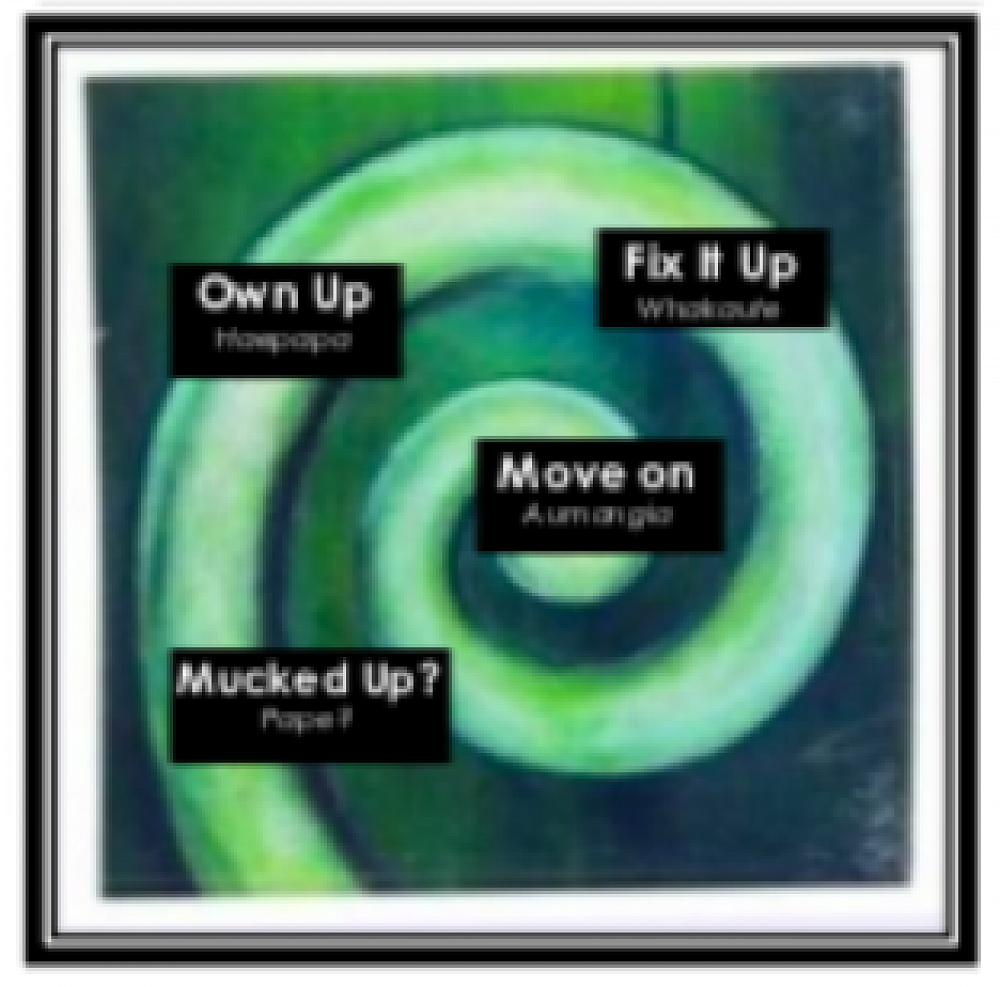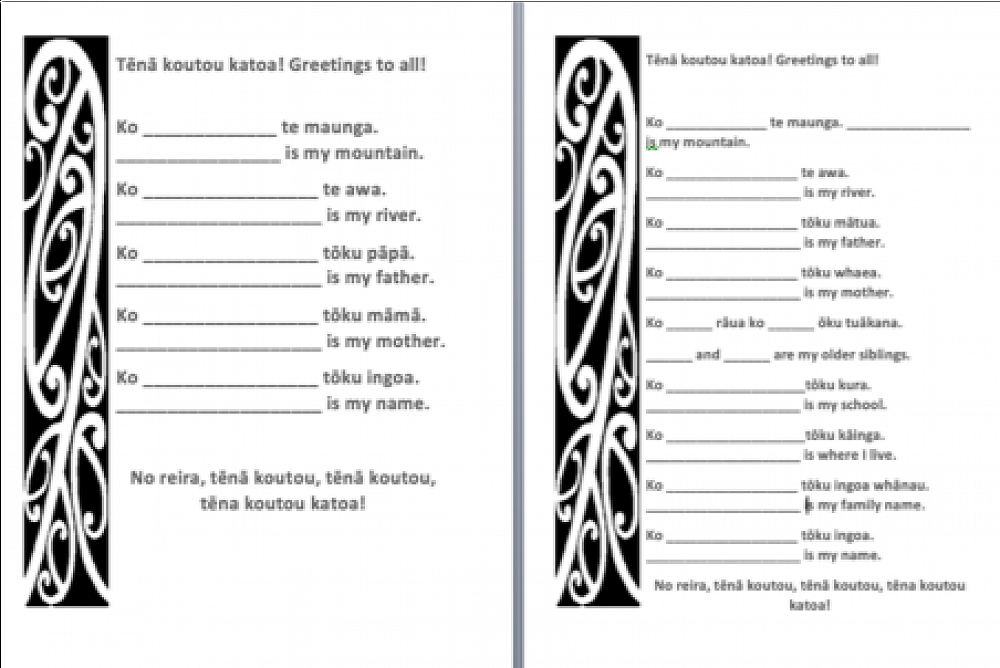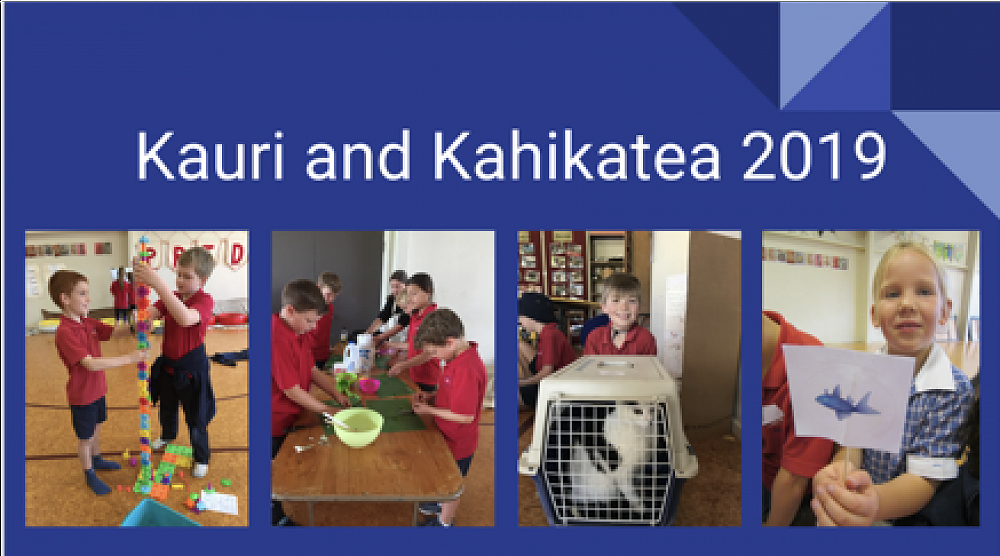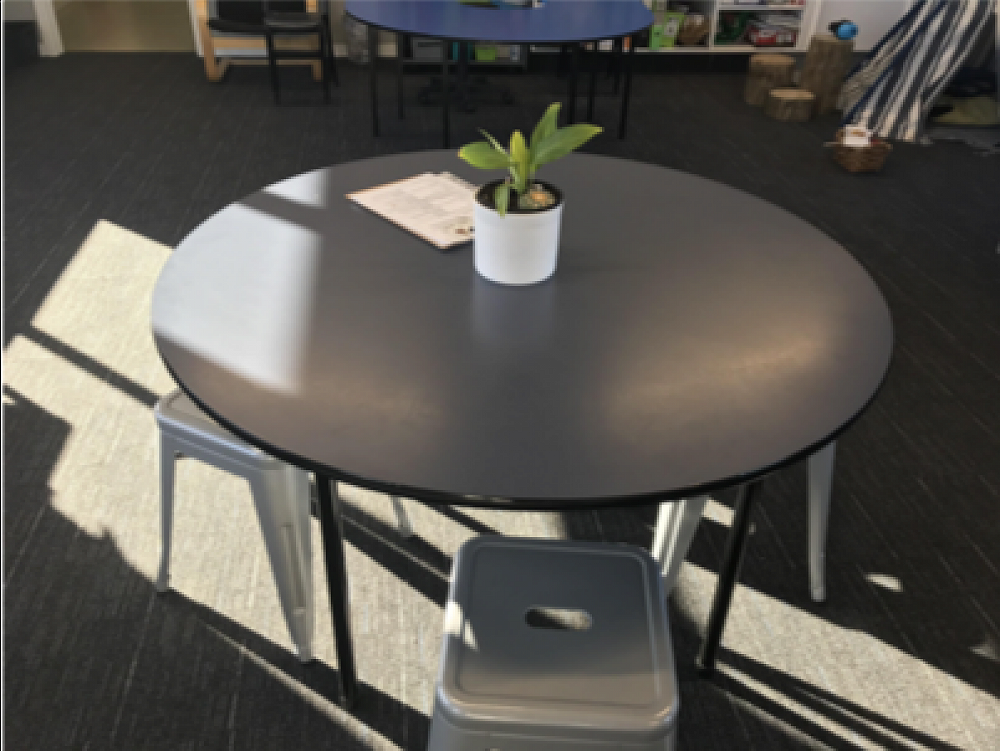Restorative Koru, Pepeha/Mihi, Connecting with Whānau, Zones of Regulation, Ashgrove STARs, Whānau Meetings
Restorative Koru
The Koru represents our Restorative process . It has four stages - Messed up? Own up, Fix up and Move on.
Why: To provide students with a model that demonstrates responsibility and resilience.
What: At Ohoka School we use the Koru to model the restorative process. Our youngest students are fully supported and guided through this process while our older students use it independently to resolve playground incidents or friendship issues.
How: The Restorative Koru is used consistently across the school. It aligns with our school values of Respect, Responsibility and Resilience and contributes to our student’s sense of belonging.

Pepeha/Mihi
Pepeha/Mihi progression through the stages.
Why: To build knowledge of student identity
What: At Ōhoka School we start with a simple pepeha and as the student progresses through the school, they add more detail. This enhances their knowledge of their whānau and where they come from.
How: We send home a template for students to go through with their whānau and build on this at school.

Connecting with Whānau
It takes a village to raise a child.
Why: To establish good relationships and open communication between all parties involved in a child’s education.
What: We meet at the beginning of the year with whānau to give them an understanding of how we work in our collaborative space, and the importance of working together to help their child.
How: We meet in our space, share information via a slideshow and encourage open discussion.

Zones of Regulation
Help students self regulate and understand and identify how they are feeling in each zone.
Why: to support students to self-regulate in order to engage with earning.
What: Identifying and use different zones.
How: taught to whole class, may require different students to have varying supports and strategies.

Ashgrove STARs
Developing school values.
Why: To develop and encourage positive behaviours and attitudes in all our students.
What: All students are aware of the values represented by the STARs (Service, Trust, Attitude, Respect/responsibility) The STAR values are reinforced by awarding students STAR tickets when they are observed displaying the values. These tickets are added into a game show style draw in assemblies. If a student has their ticket drawn out they win one of a range of prizes.
Principal’s awards are also given out to 1 student per class at assemblies. These are awarded in relation to that term’s value focus.
How: All STARS are expected to be demonstrated, however each Value is focused on for 1 term of the year in class. This will be differentiated in each learning team throughout the school.

Whānau Meetings
Why: To establish relationships and make connections (student, whānau, teacher).
What: At the start of the year (or prior to starting school) all students and their whānau meet with their whānau teacher over a two day period. Discussions involve: strengths, interests, concerns, questions, routines, physical space, programmes. This empowers both students and whānau and helps to minimise the first day worries.
How: Online bookings are made by whānau. Follow up contact is made to ensure all students have this experience.
